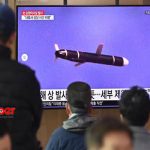David Mwanje
Refugees arrive at Palabek refugee camp in Northern Uganda with the clothes on their backs and what little they carried. #WhisperEyeNews #refugees
New arrivals, many from South Sudan, receive a tarp, tent poles, a water can, a cooking pot, and a ration card for enough food to make starvation a slower process. While aid agencies swarm Sub-Saharan Africa, home to more than 26 percent of the world’s refugee population, few make their desired impact. But African Women Rising (AWR) is having startling success.
The organization educates women and girls in Northern Uganda, schooling them in literacy, micro-finance and agriculture. Within Palabek, the nonprofit’s lessons in permaculture may make the difference between people surviving the camp and eventually thriving in a new home or not.
Seeds and tools
Permaculture is small-scale agriculture designed to be sustainable and self-sufficient. AWR developed the permagarden program at Palabek
Linda and Tom Cole, founders of AWR said that permagarden program was introduced as an antidote to the widespread seeds and tools offerings of most NGOs, especially in refugee settings, “There’s a seldom-challenged saying within the humanitarian sector that if you provide a refugee with some packets of seeds and a few tools, she might translate that into a regular supply of food for the family.” They added.
However the Coles have seen this approach fail primarily because of poor soil fertility and lack of water. Instead, AWR provides a deeper agricultural education for refugees and It focuses on building understanding around the basic principles of water and soil biology and then uses a design framework to help the farmer understand the best way to capture rainwater and enrich the soil using locally available and often waste materials such as manure, wood ash, tree leaves, and charcoal dust.
According to the Coles, they say when AWR started at Palabek, they trained about 20 people and now more than 6,000 South Sudanese refugee families cultivate vegetables here. The permagardeners at Palabek learn to harvest water and capture waste streams to enhance the fertility and productivity of their 30m by 30m plots. They also manage existing trees, plant new ones, and cultivate living fences and biomass plantings that provide materials for building, pest remedies, dry season nutrition, and medicine. “This helps reduce pressures on the environment such as the collection of fuelwood, gathering of wild foods, burning of charcoal that will continue to worsen as time goes on, exacerbating tensions between host communities and refugees,” the Coles added
The Coles stated that Permagardening is not a magic solution. The refugees don’t learn it in a day. Instead, refugee farmers participate in a series of training throughout the growing season. Local field staff called community mobilizers regularly monitor the gardens and troubleshoot problems as necessary
Why women?
The Coles founded their nonprofit organization in 2006 to empower African women to rebuild their lives after the war. “AWR’s vision is to build social, economic, and political equality for women and girls in Africa,” the Coles said. The small but mighty nonprofit’s programs help Northern Ugandan women to improve their lives through increased food production, natural resource management, financial security, and education.
Women traditionally care for children and keep households going, and therefore carry heavy post-war burdens. As Ugandan women try to feed families, they contend with financial lack and environmental challenges including deforestation, drought, erosion, water shortages, and climate change.
AWR works with the most vulnerable of vulnerable women: widows, formerly abducted women and girls, ex-combatants, girl mothers, orphans, those who are HIV-positive, and grandmothers taking care of orphans, all of whom earn less than a dollar a day. Most have had little or no formal education and are stigmatized for their disadvantages.
AWR is adamant about the women themselves being actively involved in decision-making. Before launching programs, AWR partners with community-based groups to find out what the women themselves want and need, then make plans to carry that out. “There was broad consensus that education, savings and agriculture should be the foundation of recovery,” Linda and Tom said. Once programs are up and running, community mobilizers meet weekly with program participants to monitor progress.
Other AWR extended assistance
In addition to agricultural projects, AWR is the major player in adult literacy in Northern Uganda. AWR runs 34 literacy centers serving more than 2,000 adults in Northern Uganda. With literacy comes power.
AWR also runs a micro-finance program that teaches financial literacy to women. Participants learn record keeping, basic business skills and strategies for saving money, and they gain access to capital. “AWR groups saved more than $1 million last year,” the Coles said.
The Coles say that Groups are on track to save more than $2 million this year that is $0.50 to $0.75 at a time and within the refugee camp at Palabek, the rows of vegetables thriving in the permagardens are a welcome contrast to the bleak expanse of red dirt and a rationed diet of maize, beans, oil, sugar and salt.
The permagardens provide a symbol of hope for the future. “Most refugees arriving in Palabek have lost many of the friends and family structures that were relied upon previously for social support,” the Coles revealed.
“Apart from providing food for the family and some residual income, the most profound effect of AWR’s programs is to help rebuild those layers of social capital. extra food to provide to neighbors. some small money for school fees or church offerings Female mentors and role models.”The Coles further noted.
The Coles believe thet they can put a long lasting impact in the refugee settlements in Uganda “AWR began its work in one of the most aid-dependent areas of the world. We have the long-term goal of shifting this paradigm from complete dependency to one of engagement and personal capacity.” They said.
mwanjedavid3@gmail.com



